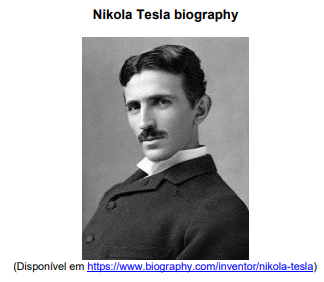Questões de Concurso
Foram encontradas 1.596 questões
Resolva questões gratuitamente!
Junte-se a mais de 4 milhões de concurseiros!
Leia o texto 1 para responder a questão que se segue.

Text V
Language Assessment and the new Literacy Studies
Some Final Remarks
Planning language assessment from a structuralist view of language has been a fairly easy task, since it aims at testing the correct use of grammar and lexical structures. This has been a very comfortable way to evaluate students’ performance in many regular schools or language institutes due to the stability of standardized answers. From the perspective of the new literacy studies, the comfort of teaching and assessing objective and homogeneous linguistic contents is replaced by a wider spectrum of language teaching and assessing possibilities, whose key elements turn to be difference and critique. Typical activities based on this new approach would enable students to make and negotiate meanings in a much more flexible way, corroborating the novel notion of unstable, dynamic, collaborative and distributed knowledge.
The inclusion of contents of such nature in language assessments may be, at a first glance, a very laborious process due to the fact we are simply not accustomed to that. Actually, we sometimes find ourselves deprived from the teaching skills necessary to apply a more critical teaching approach, a fact that is much the results of our positivist educational background.
Nonetheless, since the emergent digital epistemology will require subject more capable of designing and redesigning meaning critically towards a great deal of representational modes, we need to reconsider our teaching approaches, go further and seek theories that take such issues into account. By redefining the notions of language and knowledge, we, thus, assume that the new literacy studies from the last decades may offer very good insights to the field of foreign language teaching.
The re-conceptualization of language assessment according to the new literacies project presented in this paper does not intend to suggest prompt fixed answers, but it takes the risk of outlining possible activities, signaling certain changes regarding its characteristics and contents, as previously shared.
The increasing importance of the new literacy and multiliteracies studies and their fruitful theoretical insight for the rethinking of pedagogical issues invite us to review our foreign language teaching practices in a different perspective. By sharing some of our local findings, we attempt to corroborate the collaborative and distributed knowledge discussed by the literacies theory itself and hope to be contributing to the new educational demands of the emerging epistemological basis.
From: DUBOC, A.P.M. Language Assessment and the new Literacy Studies. Lenguaje
37 (1), 2009. pp. 159-178, p. 175-176.
Write the missing words according to the pictures. Then choose the CORRECT sequence of words below.
I. A ________of cards 
II. A _________ of wine 
III. A __________ of biscuits 
IV. A __________ of milk 
V. A __________ of tea 
The sequence that correctly complete the gaps is
Text 4 (for questions 42, 43, 44, 45, and 46)
Social networks
Going into the small room at the end of the corridor, Roberta sat down _______ 1 the computer. It was the computer she had bought when her old one’s hard disk had started to go wrong. Her new computer was a laptop with a lot of extra features and she needed it for her online work _______ 2 her students. Roberta had started to worry that her students would be bored unless she used modern technology in her teaching.
She turned_______ 3 the switch at the back of her computer. She looked at the email messages waiting for her answer, but she ignored them. Then she looked at the homework posted on a special site she created for the students, but she didn’t feel like correcting it. Instead she went to her favorite social network site and looked at the news about her friends. She sent messages to her favorite people and she had many online conversations _______ 4 teaching and other things. She posted some new messages on her own web page and then watched a film clip on a video site which her friend had told her about.
_______ 5 now, it was late and she realized that she had spent too much time talking to her friends online. She was very tired. She would have to do all her work in the morning.
(HARMER, J. Essential Teacher Knowledge: core concepts in English language teaching, p. 42. Harlow: Pearson Education Limited, 2012.
Adaptado.)
As palavras que completam o trecho corretamente são:

Observe a análise linguística abaixo e responda ao que se pede.
I. Em “Salad dressing, something we never used before, is also popular now. ”, o termo dressing, na expressão sublinhada, é um substantivo e significa, em português, molho.
II. No trecho “I fear our traditional way of doing things will soon be forgotten.”, o termo sublinhado é uma expressão idiomática que corresponde a “Eu confio”.
III. No 1º parágrafo, as palavras affected, restaurants, traditional e ingredients são palavras cognatas, mas popular é falsa cognata.
IV. No trecho “Traditionally Koreans don’t use individual plates for eating main dishes.”, as palavras plates e dishes são substantivos e têm significados semelhantes.
V. Em “Before, we had never rewarded good service with money”, foi empregado o past perfect, e o verbo destacado significa recompensar.
Estão CORRETAS apenas